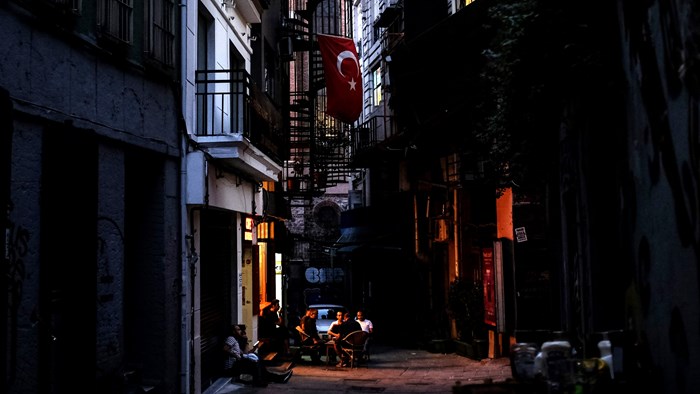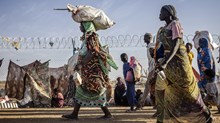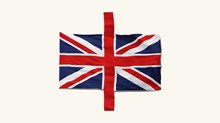
Governments are supposed to take care of their citizens. For Andrew Brunson, an American detained in Turkey for almost two years, it may be his best hope.
Charged with threatening national security because of alleged ties to terrorist groups, the pastor for two decades of an evangelical church in Izmir (biblical Symrna) faces 35 years in prison.
“If Turkey does not take immediate action to free this innocent man of faith and send him home to America, the United States will impose significant sanctions on Turkey until pastor Andrew Brunson is free,” said Vice President Mike Pence last month at the US State Department’s first-ever Ministerial to Advance Religious Freedom.
The day before, Turkey had moved the pastor from prison to house arrest shortly after Brunson’s daughter recounted his plight before the ministerial’s global audience. But his return to his Izmir home wasn’t enough.
Less than a week later, on August 1 the US Treasury Department froze the assets of the Turkish ministers of interior and justice.
“Pastor Brunson’s unjust detention and continued prosecution by Turkish officials is simply unacceptable,” said Treasury Secretary Steven Mnuchin. “President Trump has made it abundantly clear that the United States expects Turkey to release him immediately.”
Turkey responded by sanctioning the corresponding American cabinet members.
Then dramatically on August 10, Trump announced the doubling of tariffs on Turkish aluminum and steel.
The Turkish lira—already falling since May when President Recep Erdoğan announced de facto control over monetary policy—immediately plummeted another 16 percent against the dollar, hitting record lows.
And while Turkey will now receive the support of Qatar (to the tune of $15 billion), the Trump administration threatened more sanctions during its Cabinet meeting today after a Turkish court rejected Brunson’s appeal of his house arrest.
“We have more that we are planning to do if they don’t release [Brunson] quickly,” said Mnuchin during the Thursday gathering of Trump’s top officials, reported Reuters.
“They want to hold our wonderful pastor,” said Trump of the NATO ally. “Not fair, not right.”
On Thursday evening, the President tweeted, “They are now holding our wonderful Christian Pastor, who I must now ask to represent our Country as a great patriot hostage. We will pay nothing for the release of an innocent man, but we are cutting back on Turkey!”
But some analysts say high-level pressure may do more harm than good, for both Brunson and Turkey (and Europe). And Americans who serve the gospel overseas often have dual sympathies, pained by the resultant suffering of the local citizens they serve.
“I would love to have US advocacy for my release,” an American who previously worked in Turkey told CT, “even though as a Christian I could stay [in jail] as long as I needed to.”
But wishing to stay anonymous so that he can return to Turkey, his reasoning is almost the reverse of expectations.
“Politically, being detained creates a negative image of Turkey in the US,” he said. “I would want to get out as quickly as possible to continue to advocate for that part of the world, helping them see the Turkey I love.”
And this Turkey is suffering, said a Turkish evangelical involved in ministry for over a decade, who also requested anonymity to discuss politics.
“Economic disaster!” he said of the currency devaluation and the resulting dramatic spike in the cost of living for Turks. “Our people are already poor, but now the crisis deepens.”
Erdoğan has engaged President Trump’s rhetoric tit-for-tat, accusing him of an “evangelical, Zionist” mentality. But worries over Erdoğan’s economic policies and his control over Turkey’s central bank have resulted in a near 50-percent decline in the lira this year, as inflation has soared.
As Trump celebrated, Erdogan cried conspiracy.
And Turkey’s minorities unexpectedly asserted they were just fine.
“Statements alleging and/or alluding to oppression are completely untrue,” stated 18 Christian and Jewish leaders, headlined by Greek Orthodox Ecumenical Patriarch Bartholomew I of Constantinople. “Many grievances experienced in the past have been resolved.”
Many religious freedom analysts view the statement as evidence of the opposite: that minorities in Turkey are manipulated by the government in order to counter American claims of persecution. Many grievances continue.
And the above-mentioned Turkish ministry leader fears the worst.
“The response of the US is putting Turkish Christians in danger. People take it as a reason to attack us, and Christophobia is growing,” he said.
“Probably Brother Andrew will be released. But we’ll stay here and face all the effects after him.”
Turkish analyst Mustafa Akyol, senior fellow at the Cato Institute focusing on Islam and modernity, believes the traditional, established churches in Turkey will not be affected.
CT has written about their confidence—with evangelicals—to produce Christian materials in Turkish. But now the local Protestant community may face “more scrutiny.”
Missionary activity is legal in Turkey, Akyol said, author of The Islamic Jesus. But both Islamists and secular nationalists view them as “agents of dark political plots.”
Akyol thinks Brunson was arrested by prosecutors who held a deep suspicion against all Westerners in the aftermath of the failed coup in July 2016.
Brunson was then linked with Fethullah Gülen, the Sufi Muslim mystic accused of orchestrating the coup, now deemed a terrorist. Once a political ally of Erdoğan, Gülen has long been resident in Pennsylvania.
The Turkish president demanded a swap, “pastor” for “pastor.”
Besides Brunson, thousands of Turks have been imprisoned for alleged connections to Gülen. Over 150,000 public employees have been dismissed from their jobs.
With the Turkish economy in decline due to such purges and overall mismanagement, American sanctions only reinforce Erdoğan’s rhetoric.
But both sides have failed to understand how the other sees the world, Akyol said.
Brunson’s ministry involved outreach to refugee Syrians, mixing up with the ISIS threat on Turkey’s border. And US support for Kurdish forces in Syria worries Turkey, as the PKK is a terrorist threat to Ankara recognized by both capitals.
Belligerence over Brunson plays into the hands of forces on both sides who want to disrupt the historic NATO alliance.
“I would love to see Pastor Andrew Brunson go home, because I believe he is an innocent man,” said Akyol. “But I worry that this escalation may hurt his cause rather than help it.”
One Turkish Christian and human rights advocate—requesting anonymity as she works within Turkey—described the situation now as “a blunt show of power” between Trump and Erdoğan.
Turkey has now responded by declaring a boycott of US electronics such as iPhones, and raised tariffs on liquor and automobiles.
And while recognizing the ongoing issues of religious freedom, she understands the position of Turkish minority leaders, and their statement.
It may have staved off negative consequences for their communities, as now the government must stand by their public affirmation.
“In individual cases, pressure from foreign countries may produce results,” she said. “[But] unless foreign influence goes hand in hand with an internal reform process, it has very little impact. It is important to work with the government.”
Chris Seiple agrees, emphasizing the complexity of Turkey’s geopolitical setting. With Ankara tempted by Russia and Iran, it is much better to keep it in NATO and the US orbit.
“An economically destabilized Turkey is in no one’s interest,” said the president emeritus of the Institute for Global Engagement, a Christian organization promoting reconciliation and religious freedom in complicated places with governments and grassroots communities alike. “The key is probably to give Erdoğan a face-saving way out.”
Diplomacy is the answer, Seiple said, though it appears a few negotiated agreements fell apart at the last minute.
But Trump has also been too specific in his advocacy, he said. Turkey also holds a Muslim Turkish-American dual citizen, Serkan Golge. A NASA scientist, he has not received public support from the Trump administration.
Some 20 other Americans have also been rounded up since the failed coup.
“The singular focus on Brunson allows the Turkish press, among others, to promote the narrative that America only cares about American Christians, and not all its own citizens,” said Seiple. “Golge is no less made in the image of God, nor is he any less an American.”
But even if the advocacy succeeds, greater damage may be done.
“The near-term release of prisoners is not the same as promoting human rights,” he said. “This pressure could hurt long-term efforts to build sustainable religious freedom in Turkey for all minorities, including Christians.”
How might Brunson view this tradeoff, languishing in Turkish detention? He maintains his innocence, saying he was put in prison to “suffer in Jesus’ name.” He forgives those who testified against him. His Turkish lawyer even wonders if Brunson might stay in Turkey, if released.
Meanwhile, his family has partnered with the American Center for Law and Justice (ACLJ), which organized a petition drive to raise awareness and petition the State Department.
And now they are carrying their nearly 600,000 signatures to the United Nations.
“Pastor Andrew cannot afford for us to simply wait around,” wrote the ACLJ. “We are taking action.”
Should the US government? American actions toward Iran have resulted in increased difficulties for Christians there, reported Fox News this month, following renewed US sanctions.
CT has previously written on the dilemma of politics versus persecution in Iran, noting the concerns of missiologists that sanctions advocated by evangelical leaders could backfire on Iranian believers.
“In the end, one must weigh the likely temporary fallout against the potential for long-term gain and the justice of the issue in view,” Paul Martindale, lecturer in Islamic studies at Gordon-Conwell Theological Seminary, told CT in 2010. “In such complex international situations, good people will have differences of opinion.”
Feeling the weight of the issue and the sensitivity in Turkey, even the decision to contribute to this article was difficult for the opening anonymous American.
Brunson was a respected figure in Turkey, he told CT.
“When I saw pastors imprisoned in Iran and other parts of the world, I would put it on Facebook and encourage people to pray,” he said.
“But now I don’t know what to do. And I don’t want to do anything that would cause hurt.”

Support Our Work
Subscribe to CT for less than $4.25/month


















